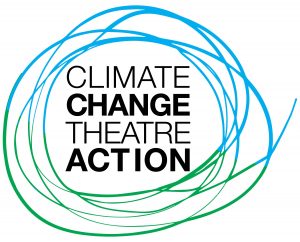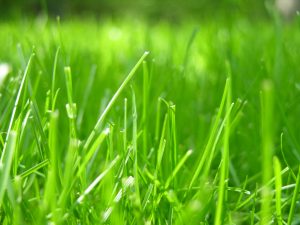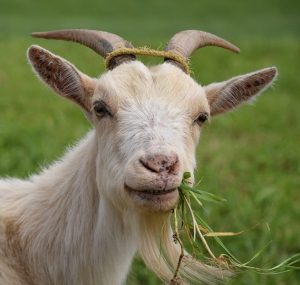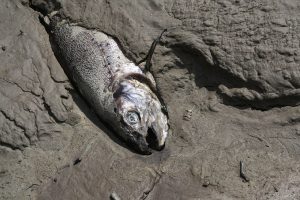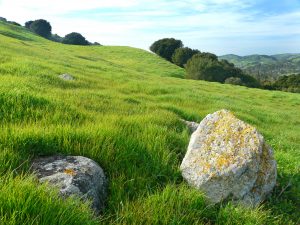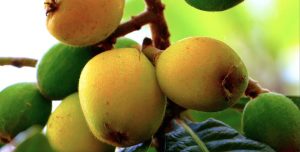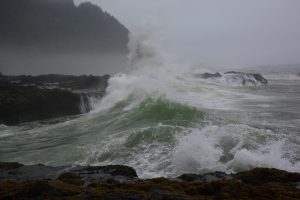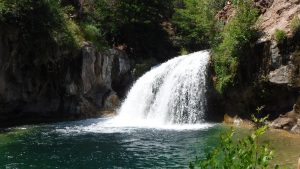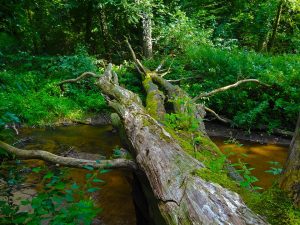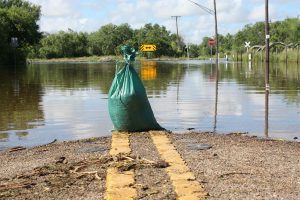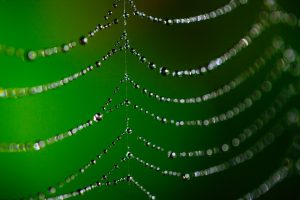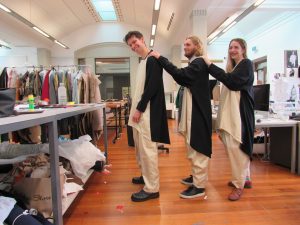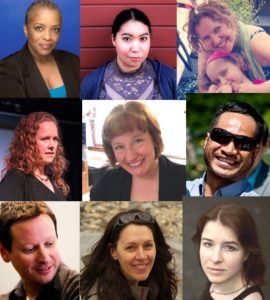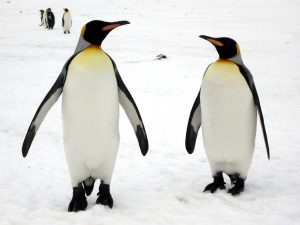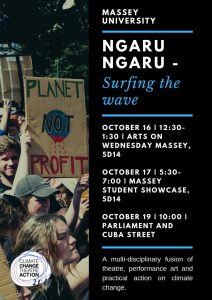 Presented by the Wellington Creativity in the Community class of 2019, Climate Change Theatre Action (CCTA) Aotearoa 2019 – Ngaru Ngaru – is a multi-disciplinary fusion of theatre, performance art and practical action on climate change.
Presented by the Wellington Creativity in the Community class of 2019, Climate Change Theatre Action (CCTA) Aotearoa 2019 – Ngaru Ngaru – is a multi-disciplinary fusion of theatre, performance art and practical action on climate change.
CCTA Aotearoa 2019 is part of the global Climate Change Theatre Action movement led by The Arctic Cycle, the Center for Sustainable Practice in the Arts, and Theatre Without Borders. CCTA is a worldwide series of readings and performances of short climate change plays presented biennially to coincide with the United Nations COP meetings.
Our CCTA Aotearoa event features four official Climate Change Theatre Action 2019 plays: Abhishek Majumdar’s ‘The Arrow’; Jordan Hall’s ‘The Donation’; Matthew Paul Olmos’ ‘Staring her Down’ and Stephen Sewell’s ‘The Reason’. The programme also features a zero-waste, anti-fast-fashion-inspired performance art promenade piece utilising litter found on our campus. Plus, two brand new devised performance poetry and movement works in which Māori and non-Māori students are working together to express how learning from Indigenous Māori values of spiritual connectedness with land, and kaitiakitanga (guardianship), can help us all reconceptualise the path forward for transforming the way we live.
Our event acknowledges the Te Reo Māori (Indigenous language) concept of ‘Ngaru Ngaru’, which translates roughly as ‘Riding the Wave’ or ‘Surfing the Wave’, but could also imply ‘Being the Wave’. Ngaru Ngaru is the third iteration of Massey University School of English & Media Studies at Wellington’s creative response to climate change. In 2015 we delivered ‘Waves’, starting ripples of climate change conversation and action within the community. In 2017 we followed up with ‘Still Waving’, to inspire our audiences that there is still hope in addressing the effects of climate change – things are dire, but we are not drowned yet.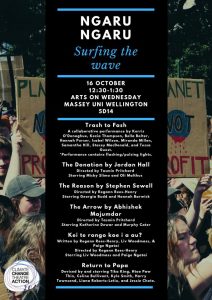
This year, with ‘Ngaru Ngaru – Surfing the Wave’, we embrace the idea that now a global wave of people power is building, and there is a groundswell of action and hope that we can all find collective strength from. In our commitment to our creative work, we have been inspired by the School Strikes for Climate, Extinction Rebellion and similar groups. We are adding our creative voices to their courageous action, to inspire through arts, performance, and provocative street theatre. Together we are a global wave of change on many fronts.
a global wave of people power is building
As well as being a creative intervention, our event takes practical action by delivering on measurable targets of reducing, reusing, recycling and repairing to reduce our waste and carbon footprint wherever possible. Anything remaining in our calculations we are offsetting with native tree plantings (come to our events and you could get a free kawakawa seedling!).
We are documenting and tracking our carbon reduction efforts in order to develop and test a shareable ‘Carbon Neutral Theatre’ template for other future creative events.
Performances:
– Wednesday October 16, 12.30pm, 5D14 Theatre Laboratory, Te Kunenga ki Pūrehuroa i Te Upoko O te Ika (Massey University Wellington Campus), Aotearoa (New Zealand). The full show with all our CCTA plays plus the devised and performance art works.
– Thursday October 17, 5.30pm, 5D14 Theatre Laboratory, Te Kunenga ki Pūrehuroa i Te Upoko O te Ika (Massey University Wellington Campus), Aotearoa (New Zealand). The full show with all our CCTA plays plus the devised and performance art works. Also features readings from our creative nonfiction class (who have also been working on ecological creativity) plus free vegan pizza for everyone!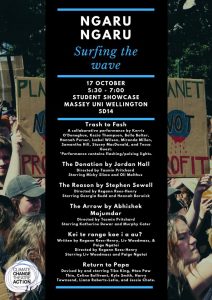
– Saturday October 19, various waterfront & CBD locations, including Parliament Gardens, Lambton Quay and Cuba Mall, Te Whanganui-a-Tara (Wellington City), Aotearoa (New Zealand). A selection of our devised and performance art pieces translated into vibrant street performance. (Come for as little or as much as you like! Follow us on Facebook for exact times and locations!)
Follow us at https://www.facebook.com/ngarungaru.ccta/ for more details and updates counting down to Ngaru Ngaru – CCTA Aotearoa 2019. Join us, and be part of the tide of transformation.
